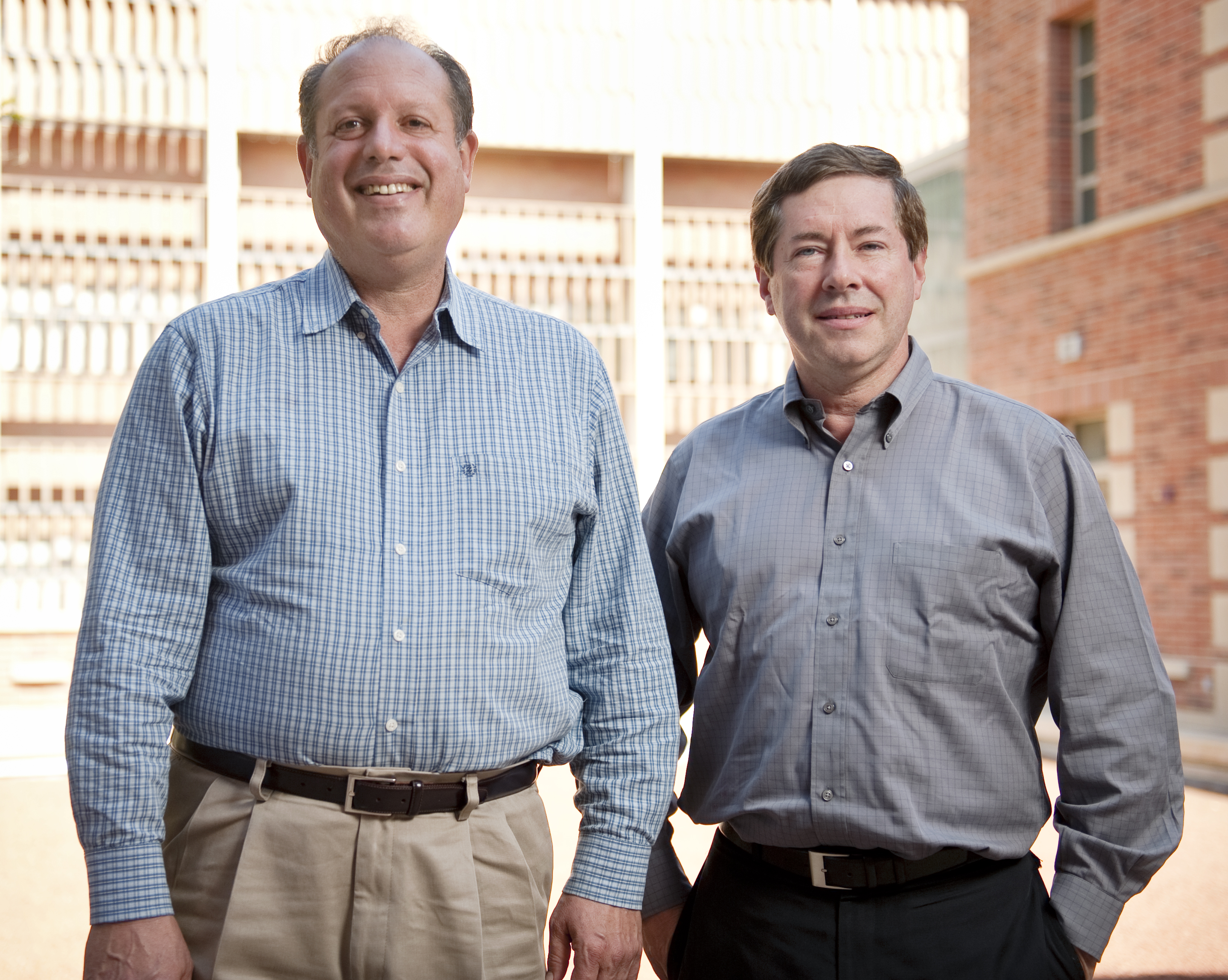Closure of NASA’s space shuttle program to limit UCLA research

Mike Rich (left), a UCLA research astronomer, and Matt Malkan, a UCLA physics and astronomy professor, rely on information from the NASA space shuttle program, which will end in June with Atlantis’ final flight. The program completed more than 100 missions and placed the Hubble Space Telescope above Earth.
By Lynn Rice
May 12, 2011 12:33 a.m.
UCLA physics and astronomy professors fondly recollect the space shuttle Challenger’s first landing from orbit ““ the crowds of half a million, the thundering noises and the desert heat.
In the coming years, no such memories will be made. NASA is scheduled to end its space shuttle program in June with Atlantis’ last flight, according to a news release from the organization.
After Atlantis is laid to rest in the Kennedy Space Center, UCLA professors will rely on less real-time data from orbiting observatories in their research.
NASA’s space shuttle program, valued at nearly $175 billion, built five shuttles ““ Columbia, Endeavor, Atlantis, Discovery and Challenger ““ that completed more than 100 missions. The space shuttle program has put numerous observatories into orbit and placed the Hubble Space Telescope in its permanent position 380 miles above the Earth’s surface.
Several observatories will remain operational, but no missions will be conducted for repairs until a replacement program is put in place.
“Astronomy has been on an exciting, thrilling rampage for years,” said Matt Malkan, a physics and astronomy professor at UCLA. “We’ve been brought to a crossroads now, though. The fact that we have many more ideas than we can pursue is sobering.”
The Hubble Space Telescope has been the centerpiece of the space shuttle program based on the sustained, scientifically valuable images it outputs, said Mike Rich, a UCLA research astronomer who relies on images from the Hubble for his research.
“The Hubble will probably be O.K. for at least five years,” Rich said. “But if something happens, they won’t send anything up to repair it.”
The Hubble has sent back detailed images of galaxies billions of miles away, and the data obtained has enabled physicists and astronomers to calculate the expansion of the universe within 3-percent accuracy.
But Mike Jura, a physics and astronomy professor, said the success of modern astronomy has not relied solely on the Hubble. He cited the space shuttle program’s inception of observatories such as the Compton Gamma Ray Observatory, which detects and tracks the most energetic form of radiation in the universe, as another notable success.
“Looking back, some of the shuttle missions were exciting, but a great part of what the shuttle program was doing was taking teams of seven astronauts to dump large payloads in space,” Malkan said. “That is both risky and expensive.”
He added that manned missions were intended to incite public interest, though they didn’t always require astronauts.
Ben Zuckerman, a professor of physics and astronomy, said the space shuttle budget might have been better spent. He questioned the impact of investing the space shuttle program’s budget in a manned mission to Mars.
He added with a grin that, at his age he’d be a great volunteer for the mission, which is considered to be highly risky.
At its inception in 1981, a leading goal of NASA’s space shuttle program was to create a cheap, easy venue for astronauts to access space. Futurists envisioned that, through the program’s development, blasts up to Earth’s orbit would eventually become routine, costing less than a flight in a 747 jet.
However, they encountered more engineering difficulties than they imagined, Malkan said.
As the space shuttle program ends, UCLA professors approach the future with uncertainty. Functioning space stations such as the Galaxy Evolution Explorer, which surveys the sky with UV light, will be shut off at a savings of $6 million a year.
“I think that NASA is in an absolutely colossal state and doesn’t know what to do. The space program is in disarray.” Jura said. “The future of astronomy is problematic, fascinating and highly uncertain.”

